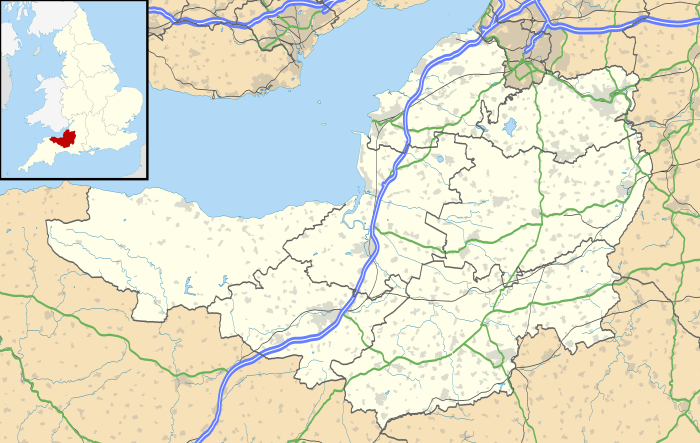Brimble Pit and Cross Swallet Basins
| Site of Special Scientific Interest | |
 Location within Somerset | |
| Area of Search | Somerset |
|---|---|
| Grid reference | ST512505 |
| Coordinates | 51°15′06″N 2°42′02″W / 51.25157°N 2.70061°WCoordinates: 51°15′06″N 2°42′02″W / 51.25157°N 2.70061°W |
| Interest | Geological |
| Area | 154.3 hectares (1.543 km2; 0.596 sq mi) |
| Notification | 1987 |
| Natural England website | |
Brimble Pit and Cross Swallet Basins (grid reference ST512505) is a 154.3 hectare (381.3 acre) geological Site of Special Scientific Interest between Wookey Hole and Priddy in the Mendip Hills, Somerset, notified in 1987.
The site covers the two adjacent karstic basins draining into Brimble Pit and Cross Swallet. These are the two best defined of the belt of large shallow closed depressions which account for the total topography along the southern edge of the Mendip Hills. The Brimble Pit depression has a large old lake sediment floor now pitted with sinkholes, while the Cross Swallet Basin feeds to a single active sinkhole around which are well preserved terraces of both rock and sediment. Both depressions have marginal cols feeding to overflow channels now permanently dry. The site also contains important Pleistocene/Quaternary mammal remains within sediments infilling former caverns exposed on the north east face of Westbury Quarry.[1]
The swallet was excavated by William Stanton between 1991 & 1992 for spelaeological purposes. However, archaeological material was discovered, leading Stanton to separate the deposits he was removing and examine them for archaeological material,[2] which included 42 sherds of Grooved Ware pottery and a polished greenstone axehead.[3]
The area is included in the Cook's Fields Nature Reserve run by the Somerset Wildlife Trust.[4]
References
- ↑ "Brimble Pit and Cross Swallet Basins" (PDF). English Nature. Retrieved 2006-07-17.
- ↑ "Upwards at 45 degrees: the use of vertical caves during the Neolithic and Early Bronze Age on Mendip, Somerset.". CAPRA. Retrieved 2007-01-27.
- ↑ "Brimble Pit and Cross Swallet". Karst Features of Great Britain. Retrieved 2008-10-18.
- ↑ "Cook's Fields". Somerset Wildlife Trust. Retrieved 2008-10-18.